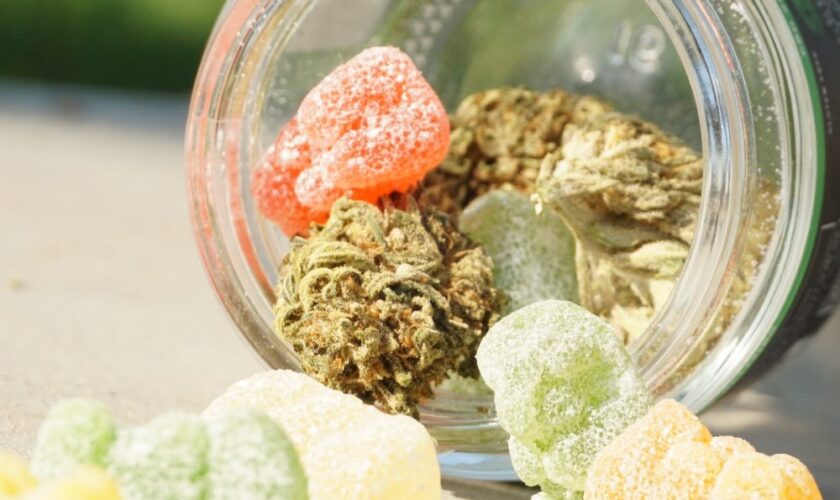If you’ve spent any time lately looking into cannabis-related products, you’ve probably come across the term THCA. And if you’re living in Georgia or planning a visit, it’s totally normal to be wondering about thca in georgia what the laws are, where things stand, and whether or not you can actually find it legally on store shelves.
Introduction to THCA
Let’s kick things off with a quick explanation. THCA stands for tetrahydrocannabinolic acid. It’s a natural compound found in raw cannabis that technically isn’t psychoactive. That means it won’t get you high unless it’s heated. When you heat THCA—through smoking, vaping, or baking it converts into THC, the well-known cannabinoid that causes psychoactive effects.
On its own, THCA has been popping up in health discussions because of some interesting research about its potential therapeutic uses. But, as interesting as that is, the bigger concern for a lot of folks is whether it’s legal to buy or sell THCA products in Georgia.
Legal Status of THCA in Georgia
Here’s where things start to get a little more complicated. Technically, THCA isn’t outright banned in Georgia state law. But Georgia doesn’t really separate THCA from THC in terms of how it’s regulated. That might sound confusing, but let’s break it down.
Georgia Senate Bill 494, which came out in 2024, made it very clear: the total THC content of hemp products must be 0.3% or less. Total THC here includes not just the delta-9 THC that actually causes a high, but also THCA—because of how it’s converted into THC when heated.
This means that even if a product is mostly THCA and has little to no delta-9 THC, it can still be considered illegal in Georgia if that combined content goes over 0.3%. This treats THCA the same way as something that can get you high, even if it doesn’t do so in its original form.
Impact of Recent Legislation
So, what changed with this Senate Bill 494? A lot, actually. Before this bill, there was a bit of wiggle room. Retailers could claim that THCA wasn’t the same as delta-9 THC and therefore didn’t need to follow the same rules. That worked for a bit—until lawmakers stepped in and basically said, “Not anymore.”
This piece of legislation closed that so-called loophole. By stating that both delta-9 THC and THCA must stay under the 0.3% combined limit, it shut down a lot of the THCA market in Georgia. So nowadays, even if your THCA flower looks and smells like a legal product, it might not be.
For consumers, this means it’s trickier to find THCA products legally in stores or online when shipping to Georgia. And it puts buyers at risk if they’re unknowingly purchasing something that exceeds that legal limit. For businesses, it’s even more serious. Selling products out of compliance can lead to fines or worse.
Regulatory Framework and Compliance
Let’s talk about how businesses stay on the right side of the law in Georgia. Anyone who wants to manufacture, distribute, or retail hemp products in the state has to have proper licenses. This includes products containing THCA. And state regulators aren’t playing games.
What that means in practice is that products have to be regularly tested in certified labs to confirm that total THC (including THCA) stays within the legal threshold. This is to make sure that stuff claiming to be legal actually is.
Many reputable businesses not only handle this testing but also provide certificates of analysis for their products. As a buyer, that’s something worth looking for. If a company can’t show you lab results, that’s an instant red flag. Testing helps guarantee safety, transparency, and legal compliance—all pretty important when it comes to cannabis-related products.
Health Benefits and Risks of THCA
You might be wondering what all the fuss is about in the first place. THCA isn’t just some chemical on a label. There’s actual scientific interest in it for a number of possible health reasons. For example, early research and anecdotes suggest that THCA may have anti-inflammatory, anti-nausea, and neuroprotective properties.
That said, none of this has been officially confirmed by the FDA, and there’s still a lot more research to be done. THCA also carries some risks, especially because of how it turns into regular THC when heated. That’s where some unintended consequences can show up. For instance, someone might think they’re using a product that won’t get them high, only to learn the hard way that it does once it’s smoked.
Understanding how THCA works and how it’s legally treated in Georgia is a key part of safely using or selling these products.
Conclusion and Recommendations
So here’s the bottom line: while THCA isn’t specifically labeled as illegal in Georgia, the combined THC content rule means that most THCA products on the market are walking a legal tightrope. Thanks to Georgia Senate Bill 494, which redefined how THC content is measured, THCA is essentially placed under the same restrictions as delta-9 THC.
For anyone curious about trying THCA for its potential health perks, the best advice is to check local laws and shop responsibly. Stick with companies that are upfront about their lab results and clearly follow Georgia’s licensing requirements. If you’re not sure, don’t be afraid to ask questions about their compliance practices.
Things change fast in this space, so staying informed and cautious is always the safer move. What’s legal today may not be legal tomorrow if state lawmakers decide to tighten things even more. But for now, understanding both the science and law behind THCA can help you make smarter decisions—whether you’re a shopper or a seller.
